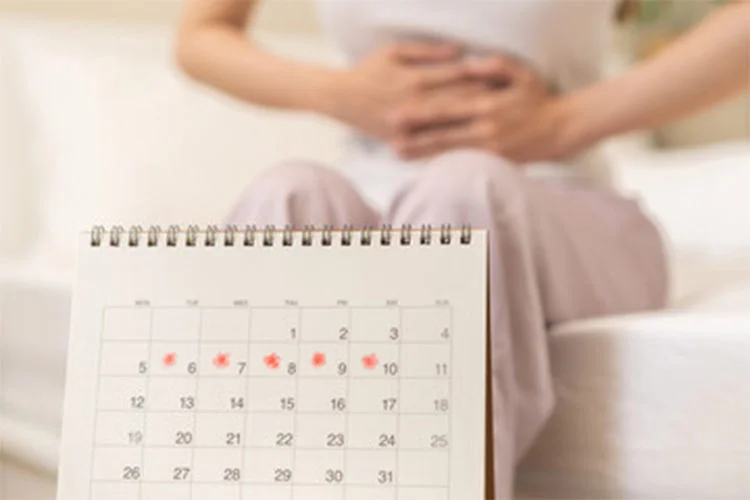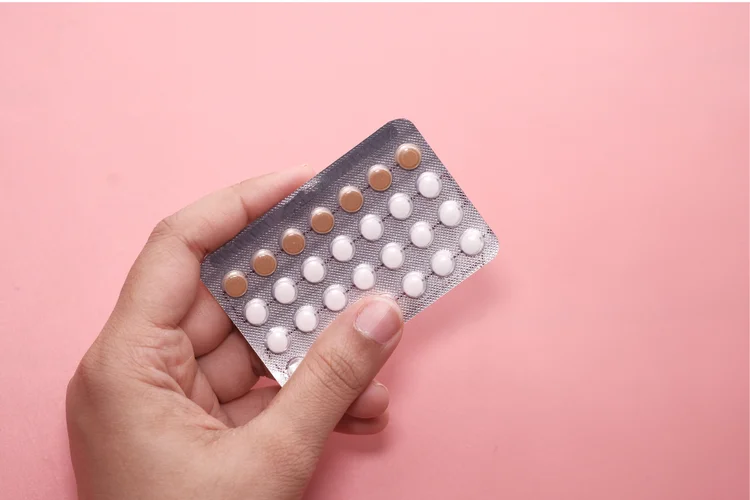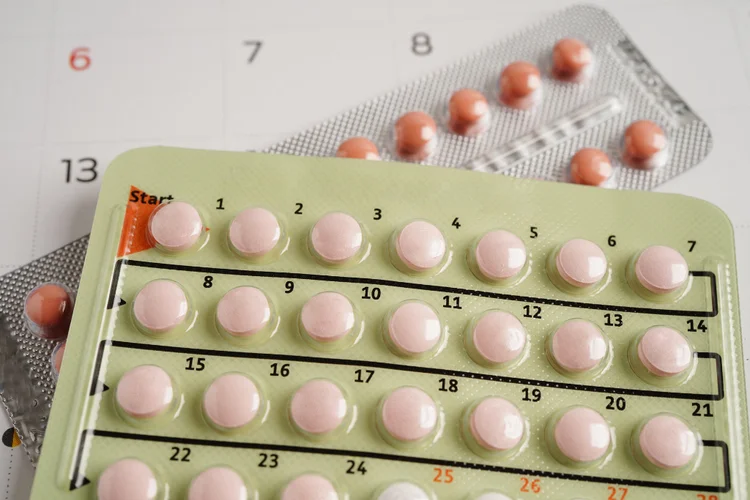Birth Control Pills Singapore
What Are Birth Control Pills?
Birth control pills, also known as oral
contraceptives, are medications taken daily to prevent pregnancy
and support reproductive health. They work by suppressing ovulation and thickening cervical
mucus, which lowers the chances of conception. Some types of birth control pills can also
help reduce menstrual cramps and regulate hormone levels.
Birth control pills differ from other contraceptive options. Emergency
contraception, commonly known as the morning-after pill, is taken after unprotected
sex to reduce the risk of pregnancy. Period delay
pills serve a different purpose, allowing you to temporarily postpone menstruation
for scheduling reasons.
How Does a Birth Control Pill Work?
Birth control pills prevent pregnancy through mimicking natural hormones, oestrogen and
progestin, which affects ovulation, cervical mucus, and the uterine lining. They work in
three primary ways:
-
Suppressing Ovulation – The pill maintains steady levels of oestrogen
and progestin, which prevent the surge of luteinising hormone (LH) and follicle-stimulating hormone (FSH), the
hormones essential for egg maturation and release during ovulation.
-
Thickening Cervical Mucus – Higher levels of progestin cause cervical mucus to become denser,
creating a barrier that makes it more difficult for sperm to reach the egg.
-
Altering Uterine Lining – Increased levels of the hormones prevent
the endometrium, the inner lining of the uterus that thickens in preparation for
pregnancy, from developing fully. This makes it less receptive to implantation if
fertilisation occurs.
The effects of birth control pills are temporary and will stop once you discontinue the
medication, allowing your natural menstrual cycle and fertility to resume.

Types of Birth Control Pills
Combination Pills
Combination pills contain both oestrogen and
progestin, which work together to suppress ovulation, thicken cervical mucus, and alter the
uterine lining. They are typically taken in cycles, such as 21-day or 28-day packs.
In a 28-day pack, the first 21 or 24 pills contain active hormones, while the remaining
placebo pills are inactive and do not contain hormones, triggering a withdrawal bleed that
mimics a period. In a 21-day pack, there is a seven-day break after finishing the active
pills, during which bleeding occurs.
Other Uses of Birth Control Pills
Beyond pregnancy prevention, oral contraceptive pills can also be used to treat a range of menstrual and hormonal concerns:
-
Menstrual Regulation – Can help regulate irregular
periods, relieve painful cramps (dysmenorrhoea), and reduce heavy menstrual bleeding
(menorrhagia).
-
Premenstrual Relief – Certain formulations may ease symptoms of premenstrual syndrome (PMS) or premenstrual dysphoric disorder (PMDD) by
stabilising hormonal fluctuations.
-
Polycystic Ovary
Syndrome (PCOS) – By lowering elevated androgen levels and restoring
hormonal balance, the pill may improve symptoms such as irregular periods, acne, and
excessive hair growth.
-
Endometriosis Support – May relieve pelvic pain associated with endometriosis
by suppressing ovulation and limiting endometrial tissue activity.
-
Hormonal Migraines – Continuous or extended-cycle pills may reduce the hormone
shifts that trigger menstrual-related migraines in some individuals.
The ways in which these pills are used can differ from person to person and depend on the specific
formulation prescribed. It is recommended to consult a doctor for personalized medical advice on
whether birth control pills are appropriate for your individual situation.
Potential Side Effects of Birth Control Pills
While birth control pills are generally well tolerated, some individuals may experience side effects
due to the way synthetic hormones influence the body's natural processes. These effects can include:
-
Nausea or headaches – Caused by fluctuations in oestrogen levels, which can
affect the digestive system and blood vessels.
-
Breast tenderness – Occurs due to fluid retention and hormonal changes that
affect breast tissue.
-
Mood changes – Result from the way oestrogen and progestin interact with
neurotransmitters such as serotonin, which help regulate mood.
-
Breakthrough bleeding or spotting – Light bleeding that occurs between periods,
especially in the first few months, as the body adjusts to hormone levels that alter the
menstrual cycle and thin the uterine lining.
Long-term side effects of birth control pills may include an increased risk of venous thromboembolism (VTE), high
blood pressure, stroke,
or myocardial infarction. These risks are higher in individuals with pre-existing conditions such as
high blood pressure, a history of blood clots, smoking,
or cardiovascular
disease.
If you have any underlying conditions or concerns about long-term use, it is best to consult a doctor to
determine if birth control pills are a suitable option for you.
Birth Control Pills Price in Singapore
At ATA Medical, we offer birth control pills, morning-after
pills, period
delay pills, and hormone
tests at the following prices:
|
Test / Treatment
|
Price*
|
| Consultation |
From $49.05 |
| Teleconsultation |
From $38.15 |
|
Medication
|
| Birth Control Pill (Yaz®) |
$43.60 (per box of 40 tablets) |
| Emergency Contraceptive Pill (Ella®) |
$43.60 |
|
Period Delay Pill - Noresthisterone
|
$0.76 per tab |
|
Hormone Tests
|
Amenorrhoea (Hormone) Profile 3
Testosterone, Estradiol (E2), Free T4, Thyroid Stimulating Hormone (TSH), Follicle
Stimulating Hormone (FSH), Luteinising Hormone (LH), Prolactin
This test is recommended for individuals with irregular menstrual bleeding and should be
conducted between days 2 to 5 of the menstrual cycle for optimal results.
|
$130.80 |
Female Acne / Weight Gain Screen**
Testosterone, Estradiol, Progesterone, TSH, Cortisol, FSH, LH, Prolactin, DHEAS, SHBG
This test is recommended for individuals with
suspected hormonal acne and should be conducted between days 2 to 5 of the menstrual
cycle for optimal results.This test is recommended for individuals with suspected
hormonal acne and should be conducted between days 2 to 5 of the menstrual cycle for
optimal results.
|
$218 |
|
Ultrasound
|
|
Ultrasound Pelvis (Transabdominal / Transvaginal)
|
$272.50 |
*Prices are NETT (where applicable) and inclusive of GST.
^Prices last updated on
Jan 28, 2026. While every effort is made to keep pricing information up to date, please contact our team to confirm the latest rates.
**Test must be done between 8:30 AM and 10:00 AM for accuracy.
Hormone testing packages are also available.
Contact
us for more information.
How to Use Birth Control Pills?
For reliable protection, take your birth control pill at the same time every day. There are two
common regimens: the 21-day pack and the 28-day pack.
21-Day Regimen:
- Take one active pill daily for 21 days in a row.
- Stop taking pills for 7 days to allow for withdrawal bleeding.
- Start your next pack on day 8, even if the bleeding hasn’t stopped.
28-Day Regimen:
- Take one pill every day for 28 days without a break.
-
The last 4 to 7 pills are placebo pills, which do not contain hormones and trigger a withdrawal
bleed.
- Begin your next pack immediately after finishing the previous one.
If you begin taking the pill more than 5 days after your period starts, you should use additional
contraception (such as condoms) during the first 7 days.
If you're switching from another method (e.g. injection, implant, patch), speak with a doctor to
ensure a seamless transition and continuous coverage.
What Happens if I Missed a Dose?
Missing a dose can lower the effectiveness of birth control pills, especially if the delay exceeds
12 hours or multiple pills are missed. Here’s what to do if you forget a dose of a combined birth
control pill:
Less than 12 hours late:
- Take the missed pill as soon as you remember.
-
Take the next pill at your usual time (you may need to take two pills in one day).
- No other contraception is required.
More than 12 hours late:
If you missed a pill and more than 12 hours have passed, refer to the instructions below based on
which week of your current pill pack you are in:
|
Week
|
What to Do
|
| Week 1 |
-
Take the most recent missed pill immediately, even if it means taking two pills in
one day.
- Continue the rest of the pack as usual.
- Use a backup method like condoms for the next 7 days.
-
If you had unprotected sex in the 7 days prior, consult a doctor about emergency
contraception.
|
| Week 2 |
-
Take the most recent missed pill as soon as possible and carry on with the rest of
the pack.
-
If you’ve taken all your pills correctly in the 7 days leading up to the missed
dose, no additional contraception is needed. Otherwise, use a backup method for 7
days.
|
| Week 3 |
- Take the most recent missed pill immediately.
-
Finish the active pills in your current pack, then skip the placebo or pill-free
interval and start your next pack straight away.
-
If you missed multiple pills or didn’t take them consistently in the 7 days before,
use backup contraception for 7 days.
|
If vomiting or severe diarrhoea occurs within 3 to 4 hours after taking your pill, the hormones may
not be absorbed properly. In this case, treat it as a missed dose and follow the relevant
instructions.
When unsure, check the medication leaflet that comes with your pills or consult your doctor for
guidance regarding your situation.
Where to Buy Birth Control Pills in Singapore?
ATA Medical @ Orchard
Address: 1 Orchard Blvd, #05-09 Camden Medical Centre, Singapore 248649
Nearest MRT: Orchard Boulevard Station (TE13)
Contact Number: 6223 0682
Email: camden@atamed.sg
Opening Hours:
Mon - Fri: 8:30 AM to 12:30 PM, 1:30 PM to 5:30 PM
Sat: 8:30 AM to 12:30 PM
Sun & PH: Closed
ATA Medical @ Tanjong Pagar
Address: 72 Anson Rd, #01-02 Anson House, Singapore 079911
Nearest MRT: Tanjong Pagar Station (EW15)
Contact Number: 6223 0682
Email: hi@atamed.sg
Opening Hours:
Mon - Fri: 8:30 AM to 12:30 PM, 1:30 PM to 5:30 PM
Sat: 8:30 AM to 12:30 PM
Sun & PH: Closed
Navigate to Us
Frequently Asked Questions (FAQ)
Birth control pills are commonly prescribed and generally well tolerated,
but they may cause mild side effects like nausea, headaches, bloating,
breast tenderness, mood changes, and spotting. They can also increase the
risk of venous thromboembolism (VTE), stroke, and high blood pressure or
worsen existing hypertension, particularly in individuals with risk factors
like smoking, cardiovascular disease, or a history of blood clots. It is
advisable to consult a doctor to determine if birth control pills are a
suitable option based on your health profile.
In Singapore, individuals aged 16 and above can obtain birth control pills
without parental consent. However, as birth control pills are prescription
medications, a consultation with a doctor is required to assess suitability
based on your health and individual needs and to provide proper
contraceptive guidance.
Yes, certain combination birth control pills are approved for treating acne
in Singapore by regulating hormones that influence oil production. Pills
containing progestins with anti-androgenic properties, such as drospirenone
or cyproterone acetate, may be prescribed for individuals experiencing
hormonal acne. A doctor’s assessment is necessary to determine if birth
control pills are a suitable acne treatment.
The effectiveness of birth control pills depends on when they are started
and the type used. Combination pills provide immediate protection if taken
on the first day of menstruation; otherwise, additional contraception is
recommended for the first seven days. Progestin-only pills require strict
daily intake at the same time and may take up to 48 hours to become fully
effective, requiring at least two days of additional contraception when
starting. Your doctor will provide personalised guidance on contraception
during your birth control pill consultation.
No, regular birth control pills are not intended for emergency contraception
and will not effectively prevent pregnancy if taken after unprotected sex.
If emergency contraception is needed, a morning-after pill should be taken
as soon as possible for optimal effectiveness. It is advisable to consult a
doctor promptly to determine if emergency contraception is necessary and
discuss your contraceptive options.
Birth control pills do not directly accelerate hair growth, but they may
help reduce hair thinning linked to hormonal imbalances. Certain pills
containing anti-androgenic progestins can lower excess androgens, which
contribute to hair loss, particularly in conditions like polycystic ovary
syndrome (PCOS). However, individual responses vary, and it is advisable to
consult a doctor to assess whether birth control pills are suitable for
managing hair-related concerns due to hormonal factors.
Norethisterone is a synthetic progestin used in some birth control pills,
but it is not a contraceptive on its own. It is primarily prescribed for
period delay or menstrual disorders and does not reliably prevent pregnancy
when taken alone. If you require contraception, it is best to consult a
doctor to determine the most suitable option based on your health needs.
Your period typically occurs during the placebo pill or hormone-free week of
your cycle. Placebo pills are inactive pills in some 28-day packs to help
maintain a daily routine. For most combination pills, bleeding happens in
the last seven days of a 28-day pack or after a 21-day pack. This withdrawal
bleed is often lighter and shorter due to the pill's effect on the uterine
lining. With continuous or extended-cycle regimens, bleeding may occur less
frequently, such as every three months or not at all.
For combination pills, being 30 minutes late or missing one pill does not
significantly reduce effectiveness. Simply take the missed pill as soon as
you remember and continue the rest as scheduled. However, for progestin-only
pills (mini-pills), missing a dose by more than three hours may lower
effectiveness. In this case, take the missed pill immediately, resume your
usual schedule, and use additional contraception, such as condoms, for the
next 48 hours. If multiple pills are missed, refer to the pill’s
instructions or consult a doctor for guidance.
After stopping birth control pills, your body resumes its natural hormone
cycle, and ovulation can return within a few weeks, although menstrual
cycles may take longer to regulate. Some individuals experience temporary
changes such as irregular periods, hormonal fluctuations, or a delay in
menstruation. Fertility typically returns quickly, but this varies based on
individual factors, including pre-existing menstrual conditions. If your
period does not return within three months, it is advisable to consult a
doctor to rule out underlying issues.
Birth control pills are taken daily to prevent pregnancy by regulating
hormones and ovulation, while emergency contraception (morning-after pills)
is used after unprotected intercourse to reduce the risk of pregnancy.
Emergency contraception works by delaying ovulation and must be taken within
a specific time frame, typically within 72 to 120 hours, depending on the
type. Unlike birth control pills, morning-after pills are not intended for
regular use and do not provide ongoing contraceptive protection.
Most modern birth control pills have not been proven to cause significant
weight gain. While some individuals may experience fluid retention or
appetite changes due to hormonal fluctuations, clinical studies have found
no consistent link between birth control pills and substantial weight gain.
If weight changes are a concern, consulting a doctor can help determine a
suitable pill formulation based on your body’s response to hormones.
Birth control pills are not designed for weight loss, but some containing
drospirenone, a progestin with mild diuretic effects, may help reduce water
retention and bloating. However, these effects are typically minor and do
not lead to lasting weight loss. Weight loss pills work differently by
targeting metabolism or appetite regulation and are most effective when
combined with a balanced diet and exercise. They are not a substitute for
birth control. It is advisable to consult a doctor for personalised guidance
on weight loss or contraception.
Birth control pills can affect mood in some individuals due to hormonal
changes, but research on their direct link to depression is inconclusive.
While some people report mood swings or increased sensitivity, others
experience mood stability or improvement. If you notice significant changes
in mood, anxiety, or depressive symptoms while taking birth control, consult
a doctor to discuss alternative contraceptive options that may be better
suited for your needs.
To switch birth control pills, start the new pill pack immediately after
finishing the current one without taking a break, unless advised otherwise
by a doctor. This transition helps maintain contraceptive protection and
reduces the risk of breakthrough bleeding. If switching to a different
formulation or type, additional contraception, such as condoms, may be
required during the first week. Always consult your doctor before changing
pills to ensure a smooth transition based on your health needs.
Birth control pills are typically effective on their own when taken
correctly, so withdrawal (pulling out) is not necessary for contraception.
Combination pills provide protection immediately if started on the first day
of menstruation; otherwise, additional contraception is needed for the first
seven days. Progestin-only pills (mini-pills) require 48 hours to become
fully effective, requiring at least two days of additional protection when
starting. Missed pills or inconsistent use can reduce effectiveness.
Birth control pills may cause appetite changes in some individuals, but
there is no consistent evidence that they directly increase hunger or lead
to weight gain. Hormonal fluctuations, particularly from oestrogen and
progestin, can affect metabolism, fluid retention, and cravings, but
responses vary. If you experience noticeable changes in appetite or weight,
it is advisable to consult a doctor for further evaluation and guidance.
At ATA Medical, birth control pills are available for $43.60 per box of 40
tablets, while consultations start from $49.05. We also provide emergency
contraception (morning-after pills) for $43.60 and period delay pills at
$0.76 per tablet. Prices are NETT and inclusive of GST.
Yes, birth control pills can be used to delay or stop periods by
continuously taking active pills without the hormone-free interval.
Combination pills are commonly used for this purpose, but period delay
pills, such as norethisterone, are often a more suitable option for
short-term period postponement. Progestin-only pills may not be as effective
in cycle control. It is best to consult a doctor to determine the best
approach for your needs.
No, birth control pills are not available over the counter in Singapore.
They require a prescription from a doctor, who will assess your medical
history to determine if they are suitable and which option is most
appropriate. Additionally, the legal age to obtain birth control pills
without parental consent is 16 years old.
Birth control pills are primarily used for pregnancy prevention but may also
help regulate menstrual cycles, reduce period cramps, and improve acne in
some individuals. Certain formulations are prescribed to manage conditions
like polycystic ovary syndrome (PCOS) and endometriosis by influencing
hormone levels. However, effects vary, and consulting a doctor can help
determine if birth control pills are suitable for your specific needs.
In Singapore, birth control pills require a prescription, and the individual
taking them must undergo a medical consultation. While you may assist in
purchasing them after she has obtained a prescription, your girlfriend must
first consult a doctor to determine if birth control pills are appropriate
for her health and needs.
Polyclinics in Singapore do not typically prescribe birth control pills as a
first-line contraceptive option, but they may offer contraceptive
counselling or referrals to a specialist. At ATA Medical, we provide birth
control pills at $43.60 per box of 40 tablets, with same-day appointment
options available. Contact us for more information or to book an
appointment.
Yes, general practitioners (GPs) in Singapore can prescribe birth control
pills after assessing your medical history and contraceptive needs. They
will determine the most suitable option based on your health profile. At ATA
Medical, we provide birth control pills at $43.60 per box of 40 tablets,
with same-day appointment options available. Contact us for more information
or to book an appointment.
No, birth control pills are not available for direct purchase at pharmacies
in Singapore. They require a doctor's prescription before they can be
dispensed. At ATA Medical, we provide birth control pills at $43.60 per box
of 40 tablets, with same-day appointment options available. Contact us for
more information or to book an appointment.
Common side effects of birth control pills include nausea, headaches,
bloating, breast tenderness, mood changes, and breakthrough bleeding, which
typically subside with continued use. Long-term use may increase the risk of
venous thromboembolism (VTE), stroke, or high blood pressure, especially in
individuals with risk factors like smoking, cardiovascular disease, or a
history of blood clots. If side effects persist or become severe, consult a
doctor for further evaluation.




